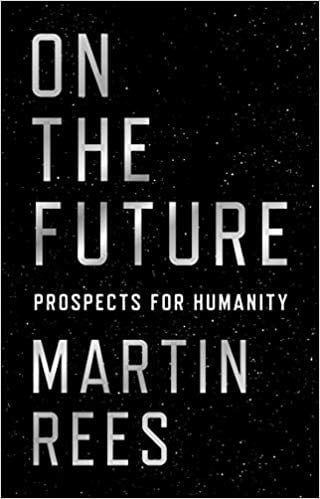You have /5 articles left.
Sign up for a free account or log in.
 On the Future: Prospects for Humanity by Martin Rees
On the Future: Prospects for Humanity by Martin Rees
Published in October of 2018.
How would you answer this question:
Will the lives of our grandkids be better than our own?
This is a question about progress. Are things, in general, likely to get better or worse? Will the world be a better place in 2050 than it is in 2018?
When posed these questions, many higher ed people will answer in the negative. Academics who are optimistic about the future are often viewed as unthinking, naive, and privileged.
If you count yourself among the tribe of pessimists, or even if you are agnostic about the future, I suggest that you first take the time to read On the Future.
It was Scott McLemee’s review that first led me the book. That I could read Scott’s well-written and informative book review at zero cost to me, and then download the audiobook version for $6.95, is evidence that the world is a pretty great place. The fact that I did all of these things on my phone says something about progress.
Martin Rees, who when he is not writing books is Astronomer Royal, is guardedly optimistic about humanity’s future. He is a technology optimist and a political realist. The big message that Reese wants to impart is that governments and companies need to have the discipline and courage to take the long view.
As a renowned astrophysicist, Rees has considerable experience as a big picture thinker. Rees would like to see much greater investments in clean energy, as well as more substantial commitments by wealthy nations to combat climate change and global poverty, then today’s shortsighted politicians seem able to muster.
On the Future is a concise book about big ideas. The book contains brief, but well-articulated, descriptions of the likely impact of artificial intelligence and automation on employment and well-being. The warning that it is not the technology that will drive greater inequality, but rather the political choices that we will make on how excess income will be distributed, is worthy of further discussion.
Rees is modest in his predictions, taking pains to point out that it almost never ends well when academics stray from their disciplinary expertise. We need more professors to write more books about the future.
How are you feeling about 2050?
What books would you recommend about the prospects for humanity?
What are you reading?




